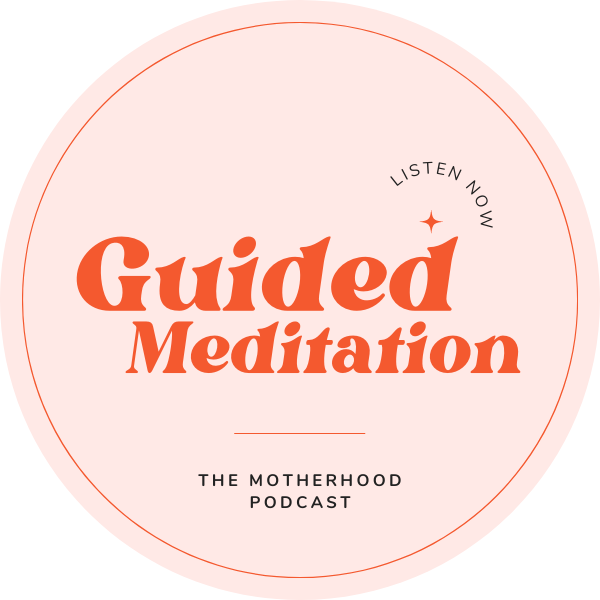Today, we are continuing our discussions on forgiveness. In episode 13, we discussed mom guilt and we walked through 5 steps to resolving it. I got a lot of great feedback about that episode, and so many of you shared how you really struggle with guilt. Maybe you feel like you work too much and aren’t able to spend enough time with your kids, maybe you’ve navigated a divorce and are carrying guilt about that, maybe you find yourself snapping at your kids more often than you’d like. So, if mom guilt or any other source of guilt is weighing you down, I’d encourage you to stop now reading now and go check out that blog post, and then come back to this one!
We’re going to switch things up a little bit today and try something new. I’m going to take you through the steps of forgiveness as the remedy to mom guilt or other kinds of guilt we experience, and then I want you to head over to the podcast for a guided meditation on self-forgiveness. I’m going to walk you through these steps and this forgiveness meditation process, and I think it’s going to be really powerful in helping you mamas just release some of the guilt you’re carrying.
We’re all humans doing the best we can at any moment, in spite of the fact that someone’s performance, or our own performance, falls short of our expectations. We’re not forgiving the events or actions that upset us, we’re forgiving ourselves for the misunderstandings we have formed or limiting beliefs we have about ourselves, or someone else, or life.
So maybe there’s something that’s happened or that’s going on in your life and you’ve done the work around it. You’ve felt the emotions tied to it and you’ve had that emotional release. And this step of feeling the feelings before jumping into forgiveness, is kind of akin to toxic positivity. It’s like you’re trying to trick yourself that everything’s good, and ok, and you’re moving on in forgiveness, but your body knows better. There’s no shortcut. So first, you’ve got to allow yourself to feel all the feelings – process them. Whether it’s anger, sadness, frustrated, embarrassment, fear, heartbreak – whatever it is, you’ve got to allow your body to feel, work through it, and release it before forgiveness is going to bring you freedom. If you can think of something and you feel ready, I’d like to invite you to join in this forgiveness meditation.
In addition to forgiving others, self-forgiveness is also a big key to our freedom.
Especially as moms, we hold so many judgments against ourselves – so many misunderstandings and false beliefs about ourselves. Sometimes, it’s easier to forgive someone else. Sometimes, it’s easier to have more compassion and understanding for what someone else did, versus actually forgiving ourselves. This is so true when it comes to mom guilt or any other kind of guilt.
Are you feeling any resistance to forgiveness?
If you find yourself feeling any resistance to getting to a place of forgiveness, I want to remind you that forgiving is not condoning behavior. It’s not an approval or acceptance of anything you or anyone else did. You might be feeling like you can’t forgive because it was just inexcusable. It was unforgivable, what happened to me. This is an indicator that you have an attachment to being in victim consciousness. There’s a big payoff to being in victim consciousness. We never have to take responsibility, we always have a scapegoat, we have someone else to blame. We sometimes get attention for it. We don’t really have to feel our feelings because we can stay in blame and resentment and never have to actually get to the sadness and grief that we’ve also experienced.
“Anger is like holding on to a hot coal, waiting to throw it at someone, all the while, you’re the one getting burned.” When we don’t forgive, we’re the ones getting burned!
Maybe you’re unwilling to forgive because you think that holding on to the resentment, blame, anger is a way to protect yourself. Let’s say for example, you’ve been cheated on, and you’re thinking that if you hold on to that anger and blame and resentment and keep it fresh in your mind, that’s your way of protecting yourself from it happening again. You’ve got to let go of this misunderstanding that holding on to that resentment or anger or blame is a form of protection, because it’s not. An actual adequate and more effective form of protection is forgiving the judgments and the misunderstandings about the events that brought that on in the first place.
Another form of resistance is the feeling that forgiveness would be unfair. If I was betrayed, or I was hurt, we can feel justified to hold on to our anger about it, our resentment about it, and no one’s going to take it away from me. That’s how I feel even – holding on to my anger and my resentment. This is a huge block to freedom, because again, your hand is the one getting burned. And maybe you need coaching or support through this, and I would encourage you to seek it out, because that need to hold on to the justification is a huge road block to going into deeper, more vulnerable, “scary” emotions. Once you do, once you give yourself permission to go into that, you can get to a level of forgiveness where you free yourself and you can drop the hot coal that’s burning your hand.
We often don’t want to forgive ourselves, because we want to punish ourselves. We think we did something bad, and we think, “well, I’m never going to forgive myself because my penance is just to continue judging and punishing myself.” So search yourself, where are you holding on to unforgiveness? Where are you unwilling to forgive yourself because you think what you did was so bad? When you’re in that pattern of self-punishment and penance, it’s going to affect other areas of your life and you’re going to experience block after block after block because on some level – you think you’re not worthy to receive. So it’s imperative that you get to a point of self-forgiveness. A point where you see, understand and feel that you are worthy.
Now I’m going to guide you through a process of forgiveness so you have a tool for yourself and also to use with your kids so that it’s not just empty words or a concept.
First off, when it comes to forgiveness, you do not have to forgive someone face to face (and neither do your kids). Forgiveness is really an internal experience. Now, if down the road you want to have a conversation with the person you’re forgiving, that’s up to you, but forgiveness is an inside job. I’m going to guide you through the process right now so you’re able to experience it firsthand, and so you can use it in the future and maybe even adapt it to use with your children. What I’d like you to do is to think of someone or something that you’d like to forgive. And I want you choose something that you’ve already allowed yourself to express emotionally, and you’ve done some work about it. So, this would not be a super fresh thing, but if it’s a trauma, it’s something you’ve spent time working through already. Choose something you’ve processed and made progress on. And if something is coming to mind for you, but you feel like you haven’t been able to process it or release it emotionally and that’s something that you’d like to explore, please reach out to me. I’ve often coached women through their traumas so they can find healing and the freedom of forgiveness.
So, you can pick a person who wronged you, you can pick an experience you had, or you can pick something that you’d like to forgive yourself for – whatever feels most present and what you feel like you’re ready for. I’m going to use something from my life – a time in high school when I was really being bullied and as we go through this exercise and meditation, you’ll hear me use examples from that time in my life, and you’ll want to fill in the blanks with your own experiences based on whatever it is you’ve decided you’re ready to forgive.
So the first thing you want to do when you’re working through forgiveness, is you want to guide yourself to a place of compassion. So that’s where we’re going to begin. I want you to head on over to the podcast so that you can participate in the guided meditation.
This is your power tool of forgiveness, use this on yourself a lot. You can save the podcast episode and come back to it whenever you need it. Practice this forgiveness model often so you can really embody it. Because forgiveness is an embodied experience, and it’s the experience that really sets us free.
And if you feel like you’re ready and willing for additional support through any road blocks you’re experiencing or you want support through the emotional release process so you can get to a place of forgiveness – fill out the coaching form on my website and we can jump on a call together. I’d love to help!


+ show Comments
- Hide Comments
add a comment